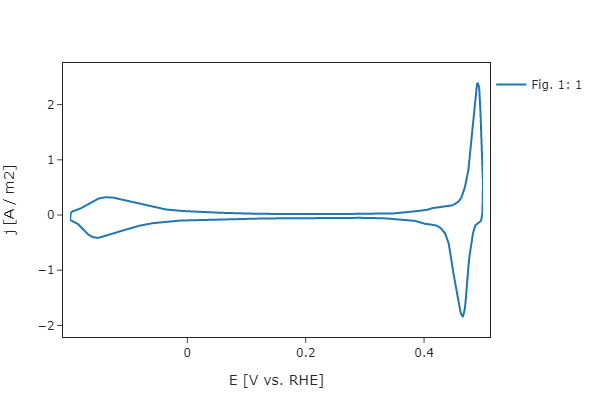The echemdb Python package can interact with a database of frictionless datapackages containing electrochemical data following echemdb's metadata schema. Such a database can be generated from the data on echemdb.org or from local files.
Detailed installation instructions, description of the modules, advanced usage examples, including local database creation, are provided in our documentation.
Install the latest stable version of echemdb from PyPI or conda.
pip install echemdb
conda install -c conda-forge echemdb
The currently available data shown on echemdb.org can be downloaded and stored in a database.
>>> from echemdb.cv.cv_database import CVDatabase
>>> db = Database()Filtering the database for entries having specific properties, e.g., containing Pt as working electrode material, returns a new database.
>>> db_filtered = db.filter(lambda entry: entry.system.electrodes.working_electrode.material == 'Pt')A single entry can be retrieved with the identifiers provided on the website (see for example engstfeld_2018_polycrystalline_17743_f4b_1)
>>> entry = db['engstfeld_2018_polycrystalline_17743_f4b_1']Each entry has a set of descriptors such as its source or the electrochemical system.
>>> entry.source # or entry['source']
{'citation key': 'engstfeld_2018_polycrystalline_17743', 'curve': 1, 'url': 'https://doi.org/10.1002/chem.201803418', 'figure': '4b', 'version': 1}The data related to an entry can be returned as a pandas dataframe (values are provided in SI units).
>>> entry.df
t E j
0 0.000000 -0.196962 0.043009
1 0.011368 -0.196393 0.051408
...The dataframe can be returned with custom or original figure axes' units by rescaling the entry.
>>> entry.rescale({'E' : 'mV', 'j' : 'uA / m2'}).df
t E j
0 0.000000 -196.961730 43008.842162
1 0.011368 -196.393321 51408.199892
...
>>> entry.rescale('original').df
t E j
0 0.000000 -0.196962 4.300884
1 0.011368 -0.196393 5.140820
...The units and reference electrodes can be found in the resource schema. The units are updated upon rescaling an entry.
>>> entry.package.get_resource('echemdb')['schema']
{'fields':
[{'name': 't', 'unit': 's', 'type': 'number'},
{'name': 'E', 'unit': 'V', 'reference': 'RHE', 'type': 'number'},
{'name': 'j', 'unit': 'A / m2', 'type': 'number'}]}The data can be visualized in a plotly figure:
>>> entry.plot()The contents of this repository are licensed under the GNU General Public License v3.0 or, at your option, any later version.
